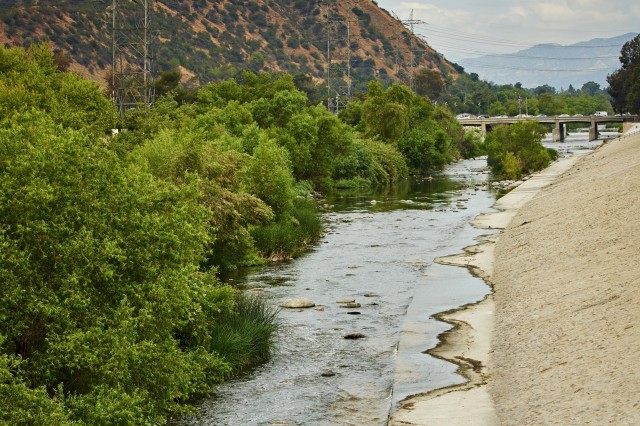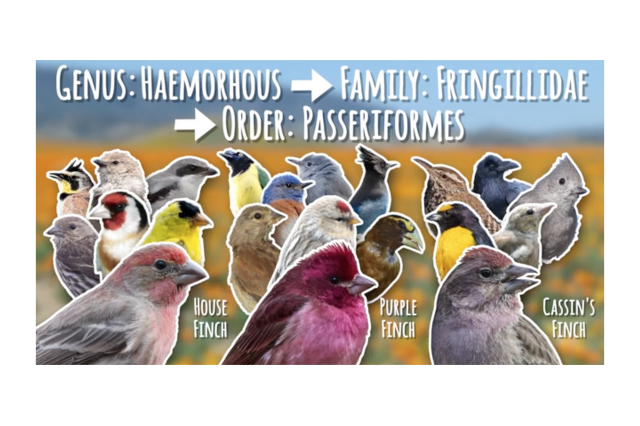Backyard Birding Episode 3: Seasonality
From molting to mating, there’s always something new happening throughout the year.
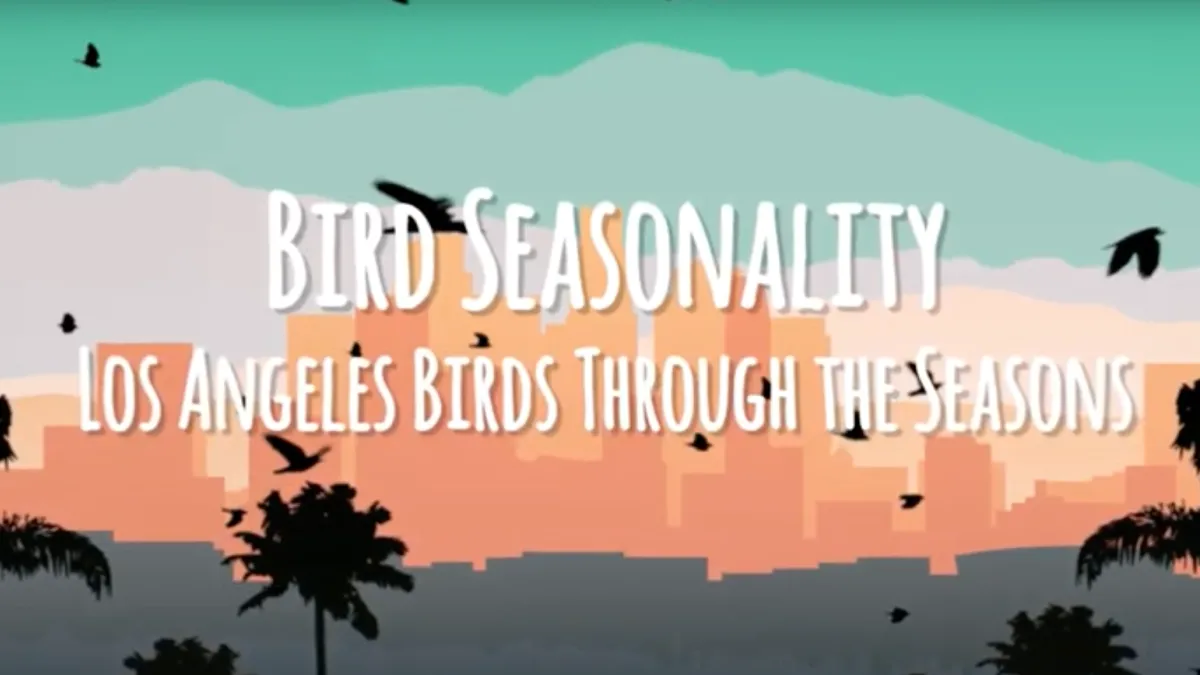
Birds. They're always up to something.
Between breeding, molting and migration, being a bird is a lot of work. These activities usually fit into predictable seasonal patterns in most species, helping birders and bird scientists better understand what's going on with birds throughout the year.
While birds are flocking all over the County, some spots are birdier than others. The Los Angeles River cuts a swath of green through L.A. attracting all kinds of wildlife and many different bird species, making it a great spot to witness the busy lives of birds.
Down by the riverside
Take migration: some birds travel to L.A. County from breeding areas hundreds or even thousands of miles away, like the dabbling duck known as the American wigeon.
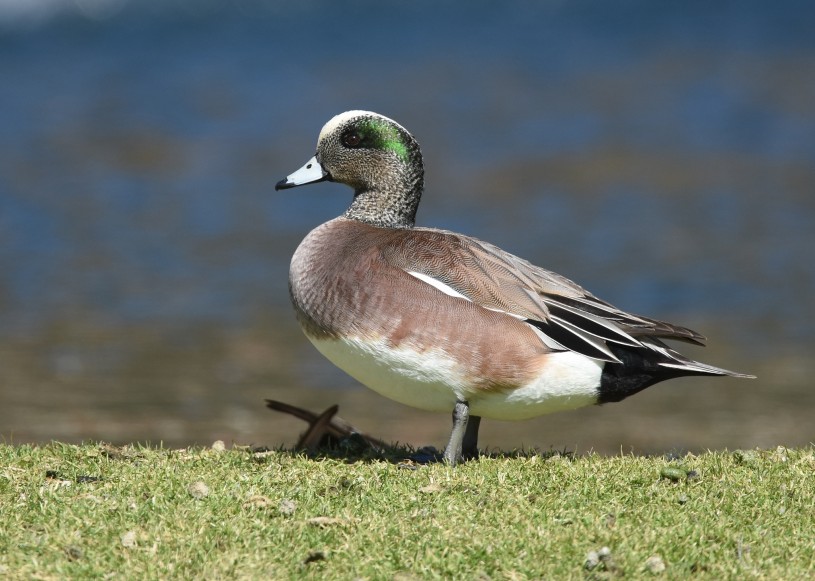
With their striking green patch behind the eye, male American wigeons certainly make a splash, and as a dabbling duck (ones that primarily makes meals close to the surface) American wigeons make a bit of a splash eating algae and other vegetation too. You can find them in our neck of the woods from October until March.
The L.A. River is for bird lovers
While many shorebirds visit the L.A. River, the black-necked stilt is one of the few to nest along the waterway. You can see these shorebirds daintily chowing down on fly larvae in shallow areas up and down the river. With their stately black and white plumage, long black bills, and long pink legs, the black-necked stilt is hard to miss.
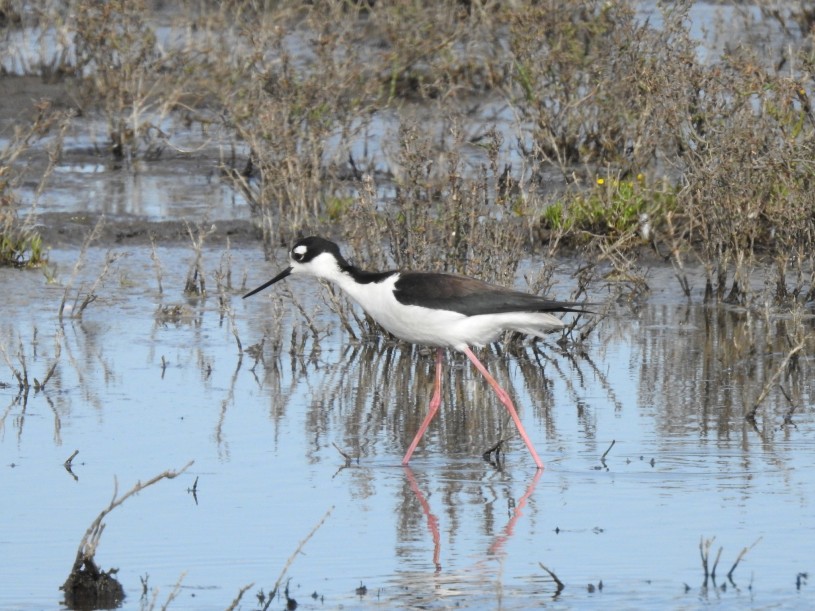
Feathered finds
While great blue herons don't nest along the River, they are frequent visitors. Even these large, majestic birds go through the slightly awkward but essential step of molting. Molting is the replacement of a bird’s feathers that are so crucial to every aspect of its life.
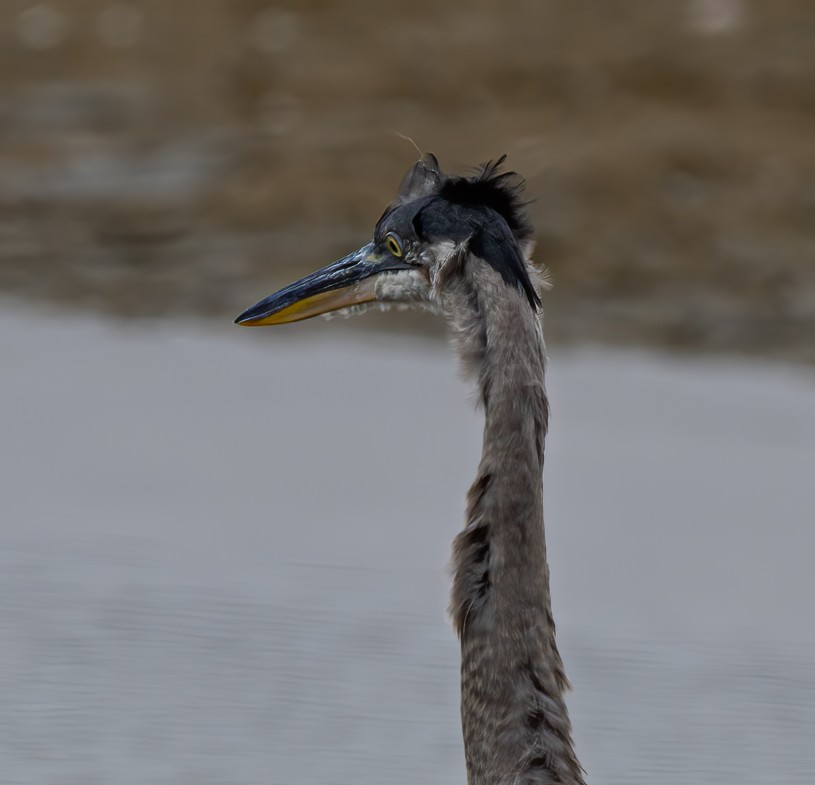
Across the world of birds, feathers change for a number of reasons. Whether it's brighter plumage to attract mates for breeding or replacing flight feathers to prepare for migration, molting helps birds keep going with their busy lives.
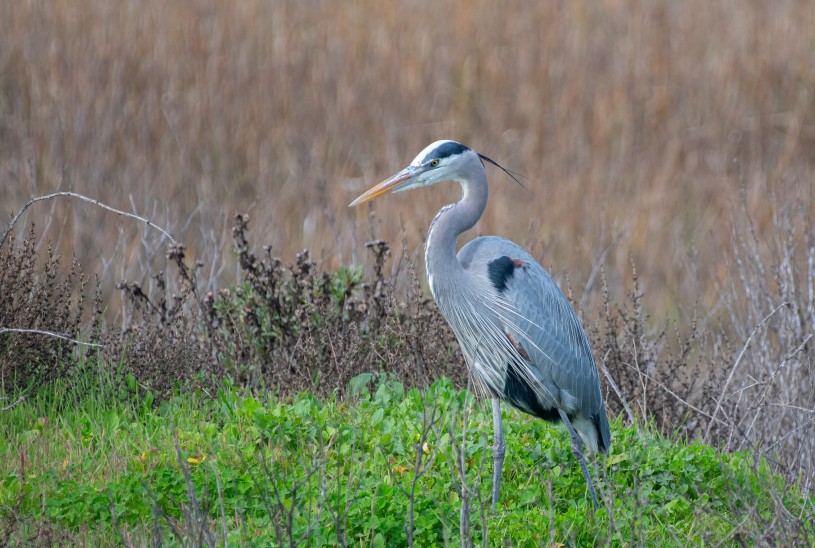
Keep your eyes peeled for all the changes happening with birds throughout the year. If you look closely, there are sure to be surprises. Pass along photos of everything you see to iNaturalist, and you'll help ornithologists and bird enthusiasts alike better understand what birds are up to.
